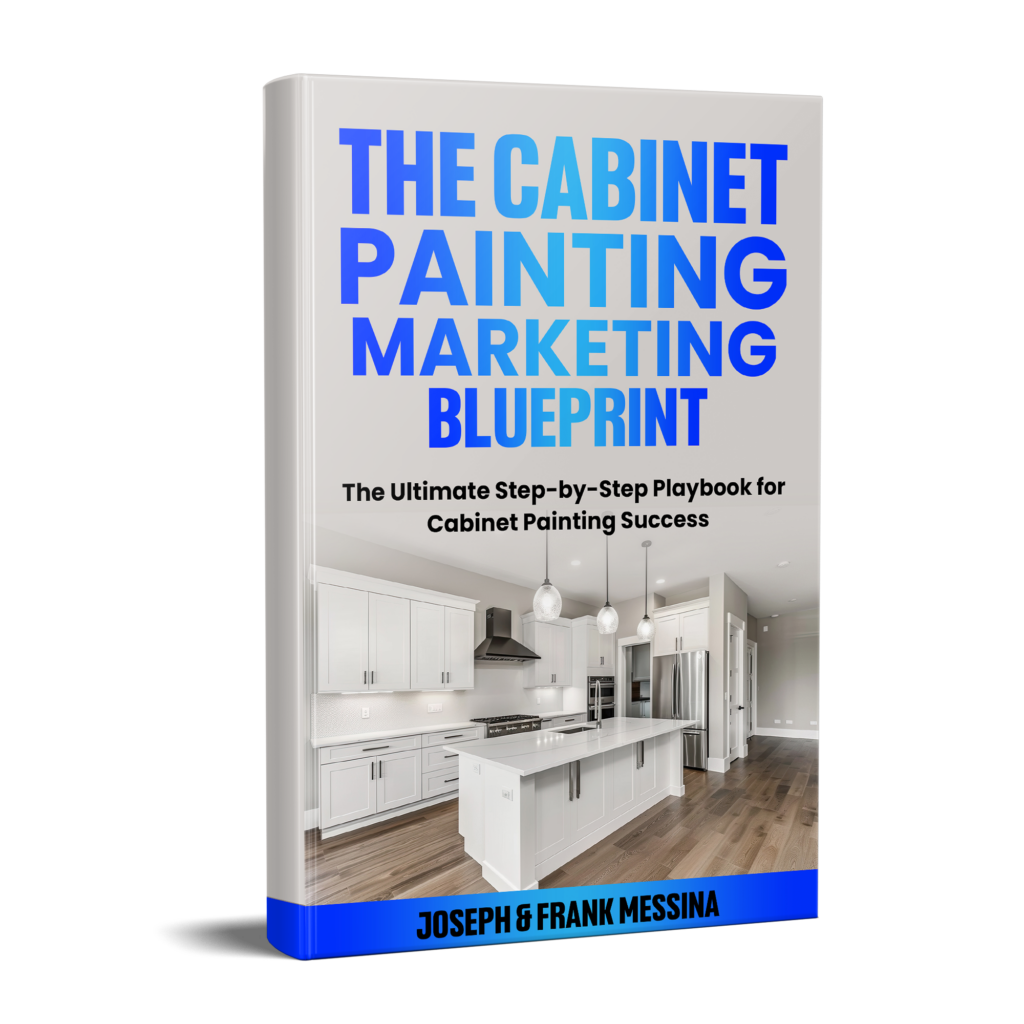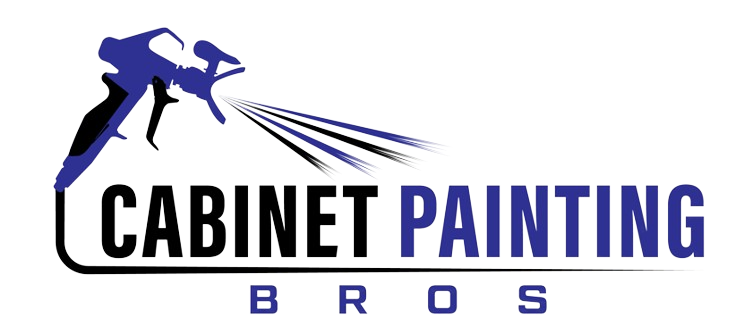The Ultimate Guide to Benjamin Moore Cabinet Paint: Advance vs Cabinet Coat
Benjamin Moore cabinet paint stands as a premier choice in the professional painting industry, with their Advance and Cabinet Coat lines leading the market. While our company specializes in alternative cabinet finishing methods, we recognize the importance of providing comprehensive information about these popular paint options. This detailed guide explores everything you need to know about Benjamin Moore’s cabinet paint solutions, including comparisons between Advance and Cabinet Coat.
Quick Answer
Benjamin Moore offers two primary cabinet paint options: Advance and Cabinet Coat. Advance is a waterborne alkyd that provides a furniture-like finish, while Cabinet Coat is a tough, acrylic coating designed specifically for cabinets and trim. Both products require specific application techniques for optimal results.
Special Resource: The Cabinet Painting Marketing Blueprint

Do you want to land more high-paying kitchen cabinet painting jobs? Learn from the Cabinet Painting Bros who consistently land 300+ cabinet painting projects a year! Download the Cabinet Painting Marketing Blueprint, packed with proven strategies and insider tips to grow your painting business. Don’t miss out on this step-by-step guide to generating cabinet painting leads like a pro.
Key Takeaways
- Advance: Waterborne alkyd with oil-like finish
- Cabinet Coat: 100% acrylic with superior durability
- Both require proper preparation and priming
- Professional application recommended
- Popular colors include White Dove and Chantilly Lace
Understanding Benjamin Moore Cabinet Paint Options
Advance Waterborne Alkyd
The Advance line combines the best qualities of oil-based and waterborne paints:
- Flows and levels like oil paint
- Low VOC formula
- Self-leveling properties
- Available in all Benjamin Moore colors
- Extended open time for smooth application
Cabinet Coat Acrylic
Cabinet Coat offers different benefits:
- Quick drying time
- Superior adhesion
- Excellent flow and leveling
- Block-resistant
- Water cleanup
Popular Benjamin Moore Cabinet Colors for 2025
White and Off-White Selections
- White Dove (OC-17)
- Soft, warm white
- Most popular cabinet color
- Perfect balance of warm and cool tones
- Chantilly Lace (OC-65)
- Crisp, clean white
- Modern appearance
- No undertones
- Simply White (OC-117)
- Versatile white
- Slight warmth
- Fresh, bright appearance
Gray Options
- Coventry Gray (HC-169)
- Classic medium gray
- Timeless appeal
- Works in any style kitchen
- Chelsea Gray (HC-168)
- Rich, deep gray
- Popular for islands
- Sophisticated look
Blue Choices
- Hale Navy (HC-154)
- Classic navy
- Trending cabinet color
- Pairs well with brass hardware
Comparing Advance vs Cabinet Coat
Advance Characteristics
- Longer dry time (16-24 hours between coats)
- Superior leveling
- Oil-like finish
- Full cure in 5-7 days
- Higher price point
Cabinet Coat Features
- Faster dry time (4-6 hours between coats)
- Excellent durability
- Available in satin and semi-gloss finishes
- Full cure in 3-5 days
- More economical
Application Process and Best Practices
Surface Preparation
Proper preparation is essential for both products:
- Clean surfaces thoroughly
- Sand existing finish
- Remove dust and debris
- Use appropriate primer
- Maintain proper ventilation
Application Methods for Advance
- Fine brush application
- Microfiber roller
- Spray application
- Multiple thin coats recommended
Application Methods for Cabinet Coat
- Spray application preferred
- Short nap roller acceptable
- Brush for detail work
- Builds well in fewer coats
Pros and Cons
Advance Advantages
- Exceptional leveling
- Furniture-like finish
- All Benjamin Moore colors available
- Excellent hardness
- Multiple sheen options
Advance Disadvantages
- Long dry time
- Temperature sensitive
- Higher cost
- Learning curve for application
- Requires multiple thin coats
Cabinet Coat Advantages
- Quick drying
- Excellent adhesion
- Durable finish
- Easy application
- Cost-effective
Cabinet Coat Disadvantages
- Less open time
- May show roller marks
- Less forgiving application
- Requires specific application techniques
- Temperature sensitive during application
Expert Tips for Best Results
Temperature and Environment
- Room temperature 65-85°F
- Humidity below 50%
- Good ventilation
- Dust-free environment
Equipment Recommendations
- Premium synthetic brushes
- Microfiber rollers
- Professional spray equipment
- Proper PPE
Care and Maintenance
Daily Care
- Gentle cleaning products
- Soft microfiber cloths
- Avoid harsh chemicals
- Prompt spill cleanup
Long-term Maintenance
- Regular inspections
- Touch up as needed
- Avoid excess moisture
- Protect from direct sunlight
Frequently Asked Questions
Which is better: Advance or Cabinet Coat?
Each has its strengths – Advance for superior leveling and appearance, Cabinet Coat for durability and faster dry time.
Can I use regular primer under these paints?
Benjamin Moore recommends specific primers: Fresh Start for Advance and INSL-X Stix for Cabinet Coat.
How many coats are typically needed?
Usually 2-3 coats plus primer, though Cabinet Coat may achieve full coverage in fewer coats.
What’s the cost difference between Advance and Cabinet Coat?
Advance typically costs 15-20% more than Cabinet Coat, but prices vary by location.
Benjamin Moore Cabinet Paint
Benjamin Moore cabinet paint options offer professional-grade solutions for cabinet refinishing. While both Advance and Cabinet Coat have their unique strengths, successful application requires proper preparation, technique, and conditions. Understanding these products helps ensure the best choice for your specific cabinet project.
Special Resource: The Cabinet Painting Marketing Blueprint

Do you want to land more high-paying kitchen cabinet painting jobs? Learn from the Cabinet Painting Bros who consistently land 300+ cabinet painting projects a year! Download the Cabinet Painting Marketing Blueprint, packed with proven strategies and insider tips to grow your painting business. Don’t miss out on this step-by-step guide to generating cabinet painting leads like a pro.

